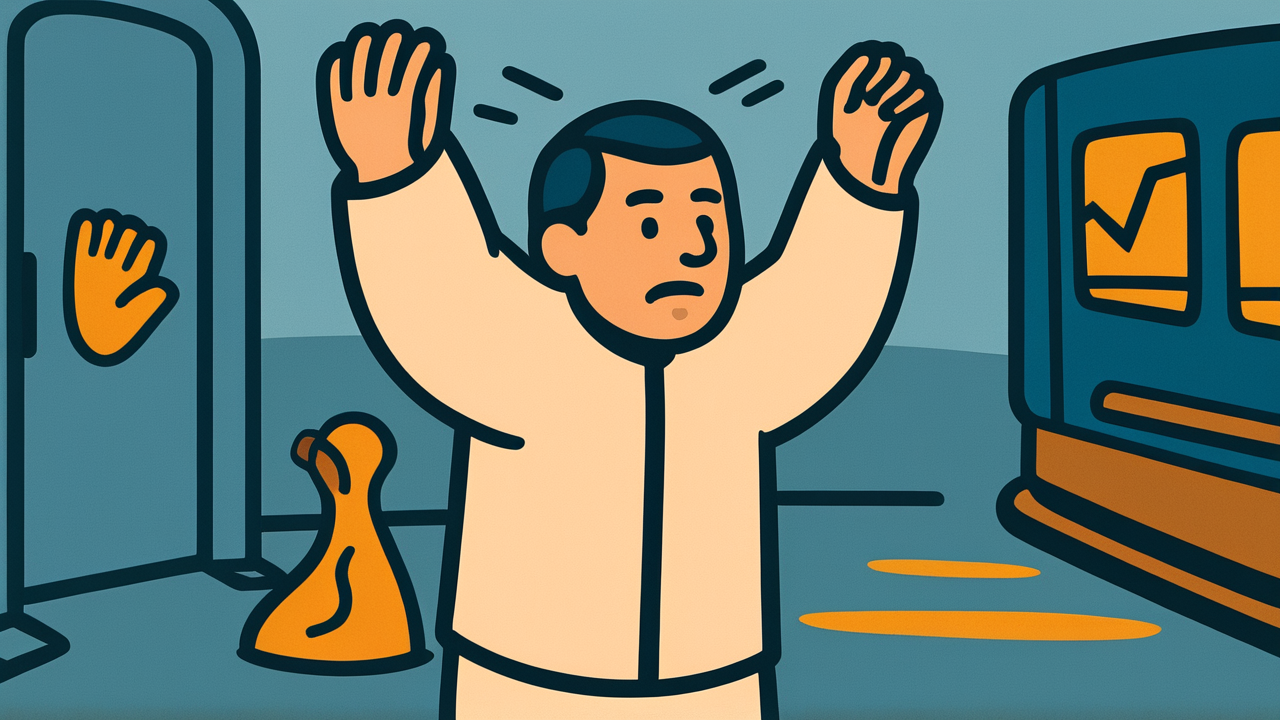How to Read “貧すれば鈍する”
Hin sureba don suru
Meaning of “貧すれば鈍する”
“If poor then become dull” means that when placed in impoverished circumstances, one loses peace of mind and becomes unable to make judgments or think in ways that would normally be natural.
This doesn’t refer only to economic poverty. It expresses how all kinds of “lack of margin” – being pressed for time, being mentally cornered, environments with limited choices – can dull a person’s thinking and judgment abilities. Even things one could normally think about calmly become impossible to judge appropriately when in desperate situations, as one’s perspective narrows.
This proverb is used when explaining someone’s inappropriate judgment in dire circumstances, when reflecting on one’s own judgment errors, or when teaching the importance of maintaining margin. In modern society, it’s applied not only to economic problems but also when explaining the importance of mental margin in our information-overloaded, stressful society.
Origin and Etymology
“If poor then become dull” is a proverb that has been passed down in Japan since ancient times, but there are various theories about its exact origins. It’s generally believed to derive from classical Chinese thought, particularly rooted in Confucian values.
The “poor” in this proverb includes not just economic poverty but also lack of mental margin. “Dull” means the deterioration of mental function, and the underlying concept that “mental state affects thinking ability” has existed since ancient times.
This expression can be found in Edo period literature, and it’s presumed to have become established as wisdom born from the lived experiences of people of that time. Particularly among the samurai class, while poverty was considered a virtue, it seems to have been used as a warning that excessive hardship would dull one’s judgment.
From the Meiji period onward, as economic disparities expanded with modernization, this proverb came to be used more widely. The reason it continues to be used today is probably because it accurately expresses the relationship between human psychological state and thinking ability. It contains universal truths rooted in people’s actual experiences that transcend time.
Usage Examples
- I’ve been too busy with work lately, and it’s like “if poor then become dull” – I keep making simple mistakes
- I was thinking only about money, and with “if poor then become dull,” I ended up destroying even important friendships
Modern Interpretation
In modern society, “If poor then become dull” has come to have new meanings. In our information society, there exist various types of “poverty” beyond economic poverty: time poverty, attention poverty, choice poverty, and so on.
Particularly noteworthy is the concept of “cognitive load.” Modern psychological research has scientifically proven that economic anxiety and time pressure actually impair brain function and temporarily lower IQ. This is exactly the phenomenon this proverb has been pointing out for hundreds of years.
With the spread of social media, we also see the phenomenon of information poverty and excess occurring simultaneously. In situations where we’re surrounded by vast amounts of information but can’t access truly necessary information, appropriate judgment tends to be lost. Also, “decision fatigue” caused by too many choices could be called a modern version of “if poor then become dull.”
In our modern era where work-style reform is being advocated, this proverb is being reevaluated as a maxim teaching “the importance of margin.” There’s growing recognition that pursuing efficiency to the point where thinking quality deteriorates is putting the cart before the horse. It’s an interesting phenomenon that an old proverb is being validated by the latest brain science.
When AI Hears This
A groundbreaking experiment conducted by a research team at Princeton University demonstrated that people experiencing financial hardship scored 13-14 points lower on IQ tests compared to their normal state. This represents a cognitive decline as severe as staying awake all night.
Why does this happen? The human brain has something called “working memory” – a limited capacity for processing information simultaneously. People in poverty constantly have their precious cognitive resources occupied by worries like “Can I pay the rent?” or “Will I have enough money for food this month?”
Even more fascinating is a longitudinal study of sugarcane farmers in India. Researchers measured the same individuals’ IQ during the poor pre-harvest period and the prosperous post-harvest period. During the wealthy period, their cognitive abilities improved by an average of 25%. In other words, poverty itself temporarily makes people “less intelligent.”
This phenomenon can be explained by “cognitive load theory.” When the brain becomes too focused on survival-related worries, it depletes the energy available for long-term judgment and creative thinking. As a result, people make poor choices they would normally avoid, creating a vicious cycle that makes it even harder to escape poverty.
Lessons for Today
What “If poor then become dull” teaches modern people is the importance of maintaining margin. In our busy daily lives, we tend to pursue only efficiency, but actually, appropriate margin is the secret to producing the best performance.
This proverb is also a gentle warning to modern people who tend toward perfectionism. Rather than cornering yourself trying to handle everything perfectly, approaching things with a little margin often yields better results.
It also gives us perspective to be tolerant of others’ failures. When someone makes a mistake, it’s important to try to understand the situation they’re in before doubting their abilities. Anyone can become unable to demonstrate their true abilities when cornered.
In modern society, it’s become important to consciously create “blank space.” Creating blank space in schedules, maintaining mental margin, keeping options open. By doing so, we become able to make calm and appropriate judgments when the time comes. This proverb teaches us such modern wisdom for living in simple words.



Comments